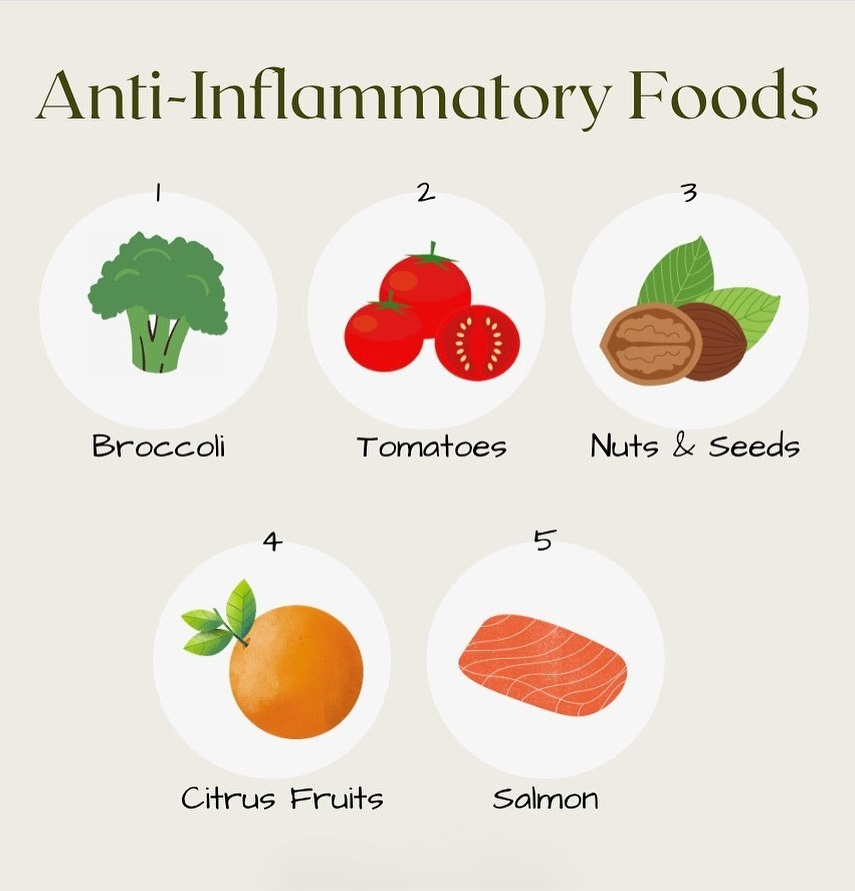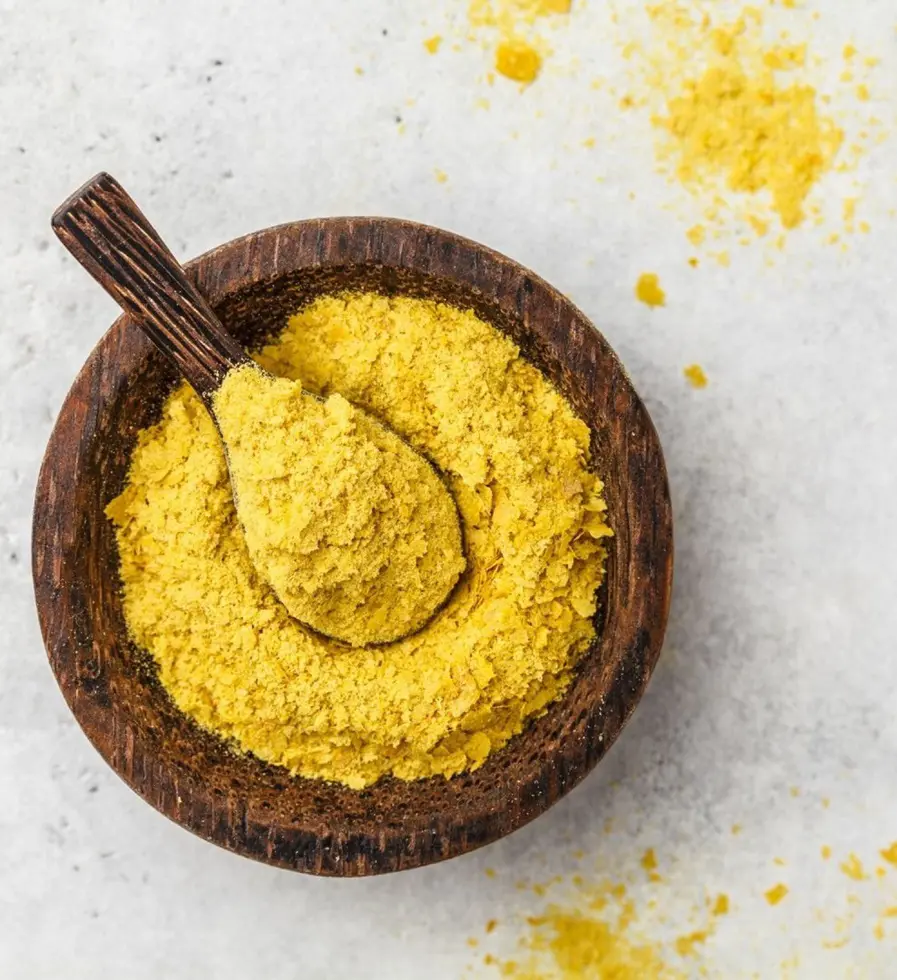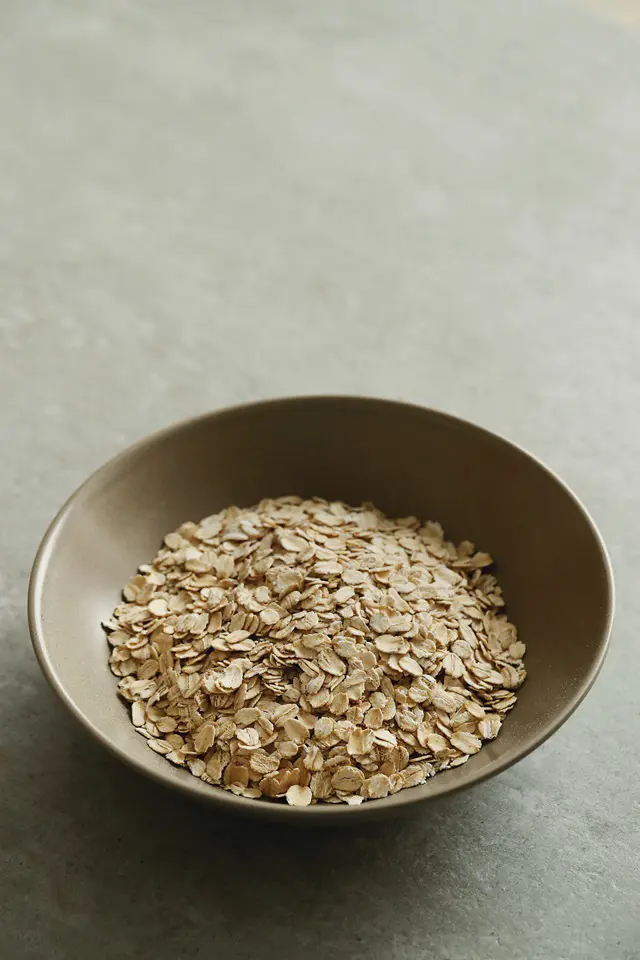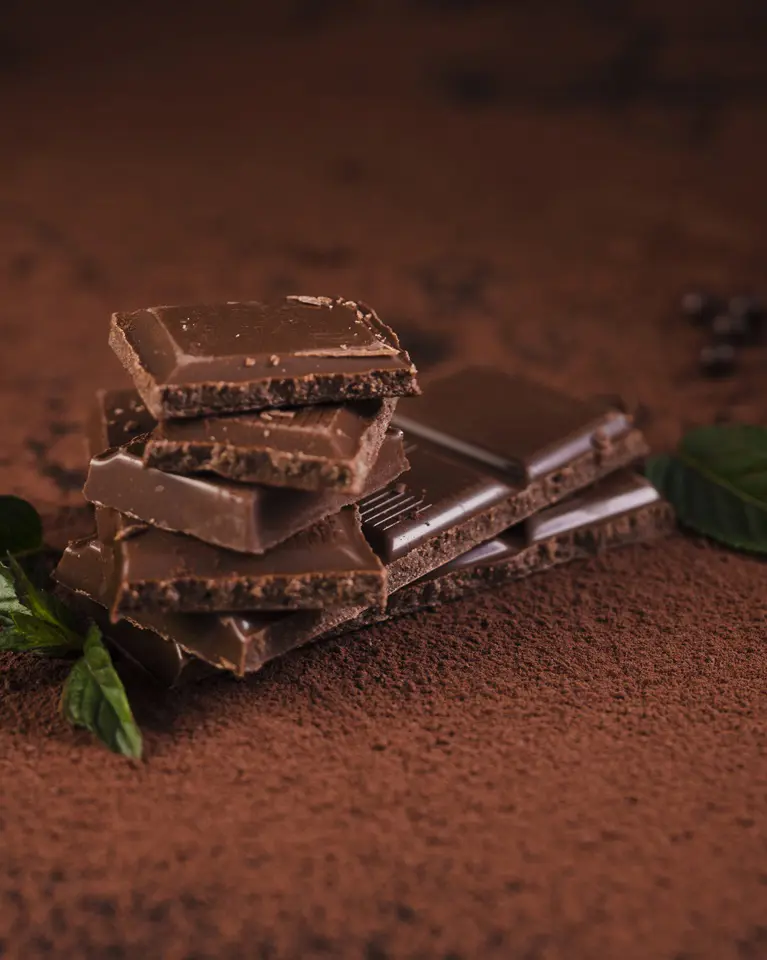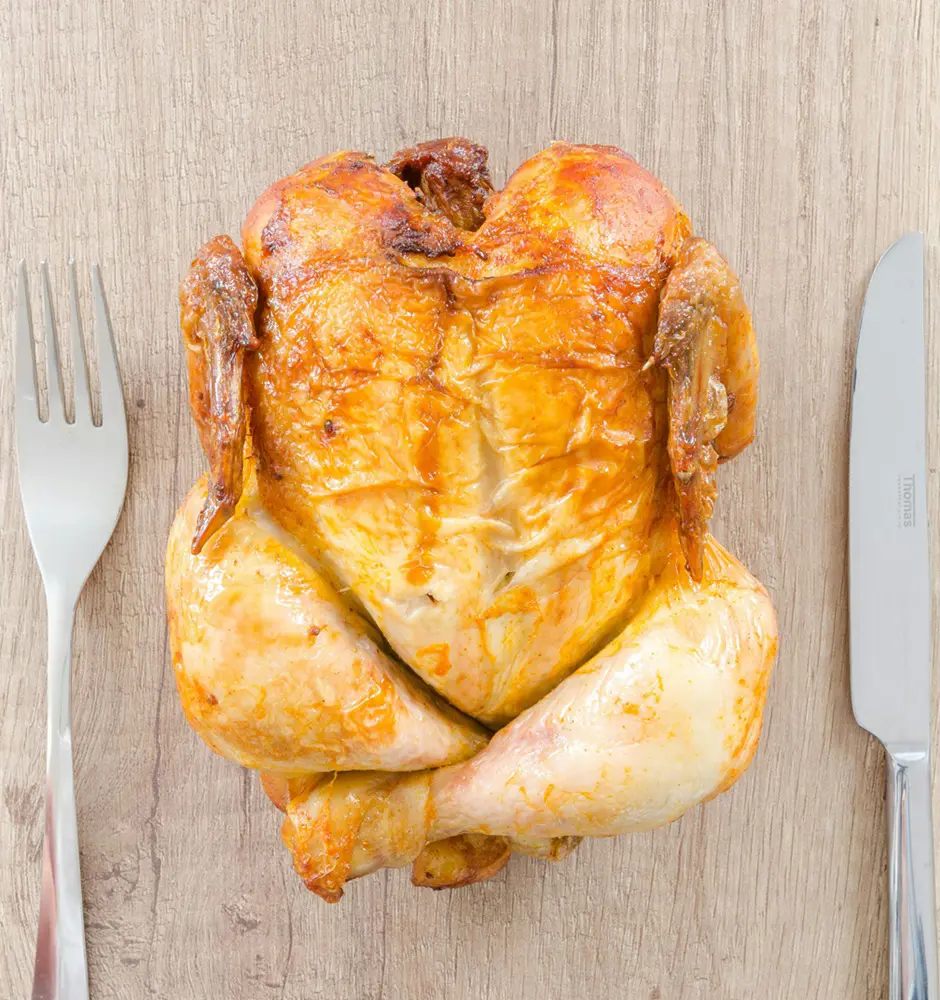15 Ways to Get Rid of Whiteheads
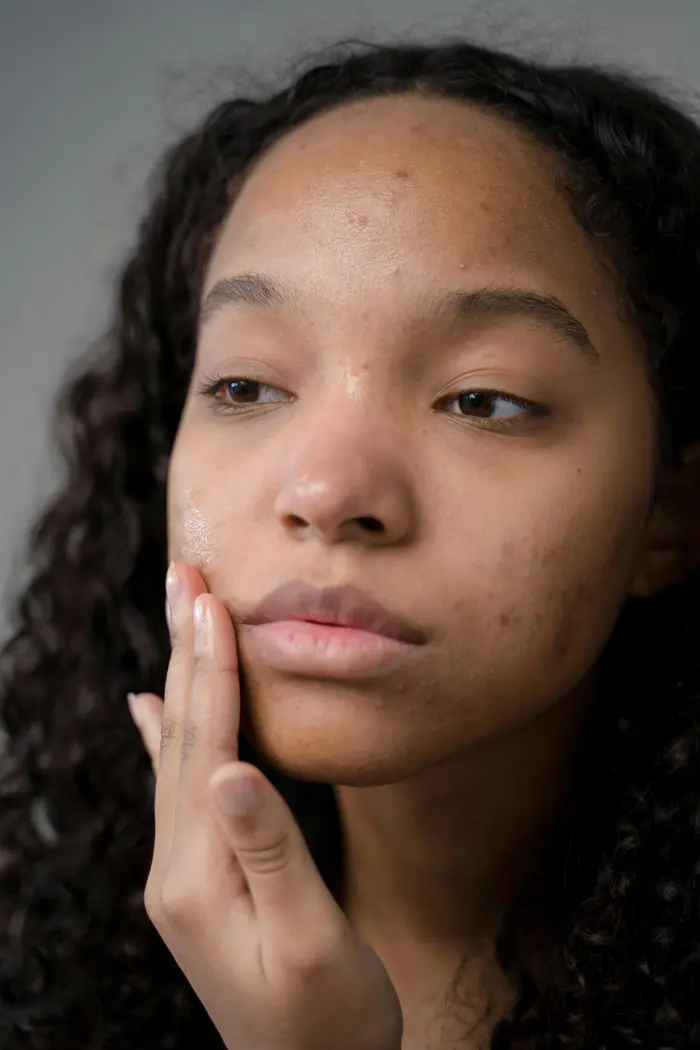
This post may contain affiliate links. If you make a purchase through links on our site, we may earn a commission.
Whiteheads are blemishes caused by clogged pores. They usually occur when oil, dead skin cells, and bacteria build up within the skin's follicles. Although harmless, whiteheads can become frustrating and affect your self-esteem.
Several factors aid in their formation, like oily skin, hormonal changes, and improper skin care. Worry not! There are effective ways to treat and prevent these blemishes. Let us discover 15 of these methods.
1. Hands-Off Approach
A hands-off approach to dealing with whiteheads involves minimizing interference with the skin to prevent irritation and worsening of the condition. This means avoiding picking, squeezing, or scrubbing the whiteheads.
Maintain a gentle skincare routine that covers washing the face twice daily with a mild cleanser. When you allow the skin to heal naturally while maintaining proper hygiene, it can aid in reducing whiteheads over time. This method emphasizes patience and restraint, allowing the skin's natural processes to resolve slowly.
2. Aloe Vera
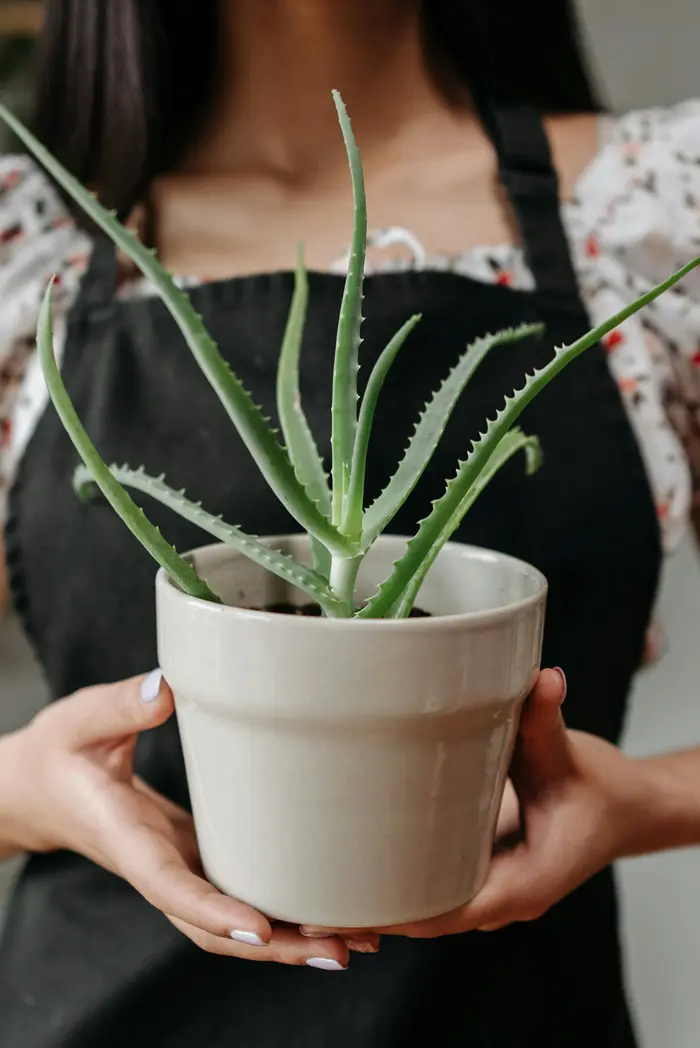
Aloe vera is known for its soothing and anti-inflammatory properties, making it effective in treating whiteheads. Using pure aloe vera gel on the affected areas can reduce redness and swelling.
Aloe vera also contains salicylic acid and sulfur, which can help unclog pores and reduce the Whitehead formation. Begin by extracting fresh gel from the leaf and applying it directly to the skin. You should also leave it on for about 10-15 minutes before rinsing it off.
3. Vitamin A Cream
Vitamin A cream often contains retinoids and is effective in treating whiteheads. Retinoids increase cell turnover, preventing dead skin cells from clogging pores. This unclogs existing whiteheads and prevents new ones from forming.
Use it at night since it can make your skin more sensitive to sunlight. Consistent use can lead to smoother skin with fewer whiteheads. Remember to follow up with sunscreen in the morning to protect your skin from UV damage.
4. Witch Hazel
A natural astringent with anti-inflammatory and antioxidant properties, Witch hazel is beneficial for treating whiteheads. It helps to get rid of excess oil and tighten pores, reducing the likelihood of whitehead creation.
To use witch hazel, apply it to a cotton pad and gently wipe over the affected areas after cleansing your face. This helps to soothe the skin, reduce inflammation, and promote healing. Its natural properties make it a gentle alternative for those with sensitive skin.
5. Tea tree Oil
This oil helps to unclog pores, reduce redness, and kill acne-causing bacteria. Regular application can lead to a noticeable improvement in the skin's appearance. It is essential to conduct a patch test before full application to avoid adverse reactions.
Tea tree oil is a popular natural remedy for treating whiteheads due to its antibacterial and anti-inflammatory properties. It is also essential to dilute a few drops of tea tree oil with a carrier oil to avoid skin irritation.
6. Apple Cider Vinegar
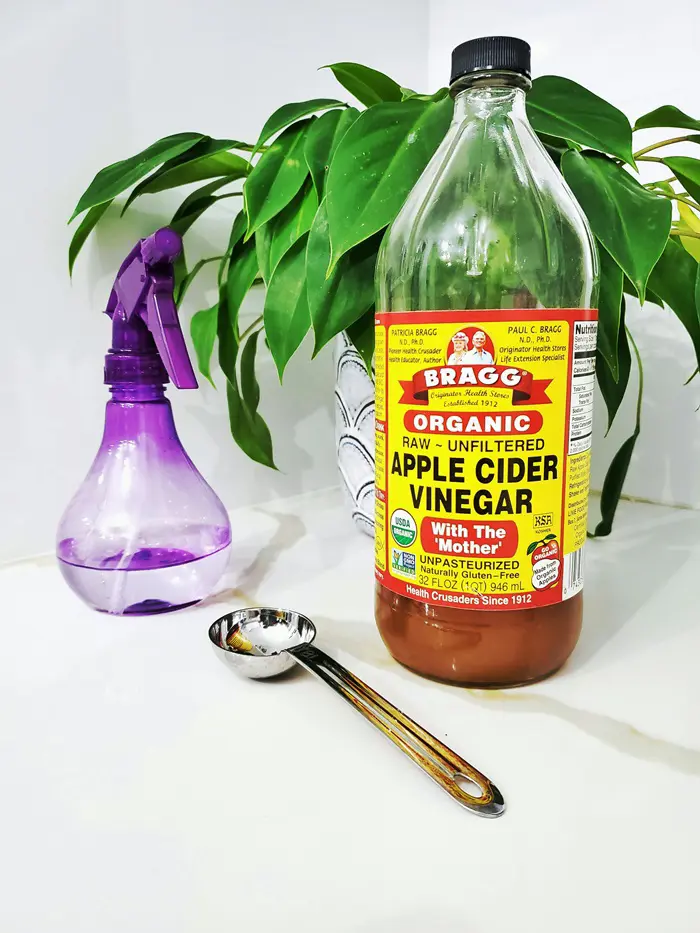
Apple cider vinegar acts as a natural astringent that helps remove excess oil and dead skin cells. You should dilute apple cider vinegar with water before using it though. Apply the mixture to your face with a cotton ball, focusing on the whiteheads.
Leave it on for 5-10 minutes before rinsing off with warm water. This remedy could help balance your skin’s pH levels and reduce the whiteheads over time. Consistent application is key to achieving the best results.
7. Facial Steam
Facial steaming is a simple yet effective method for treating whiteheads. The warm steam opens up pores. Begin by boiling water and pour it into a bowl. Place your face over the bowl, cover your head with a towel, and then trap the steam.
You should stay in this position for about 10 minutes. After steaming, gently exfoliate your skin to clear out impurities. Regular steaming can elevate your skincare routine, leaving your skin more radiant.
8. Honey
A natural humectant, honey draws moisture into the skin and helps to keep it hydrated. It has antimicrobial properties, which can help to reduce the bacteria that contribute to whiteheads. Applying honey directly to the affected area can help soothe and unclog pores.
For optimal results, you should leave the honey on for about 15 to 20 minutes before rinsing off with warm water. Consistent application of honey can improve your skin texture and reduce the appearance of whiteheads over time.
9. Benzoyl Peroxide
One effective treatment for whiteheads is benzoyl peroxide, which works by killing the bacteria that contribute to acne and unclogging pores. Using a benzoyl peroxide cream on the affected areas can reduce inflammation and whiteheads.
Remember to start with a lower concentration, like 2.5% or 5%, to minimize irritation. Consistent use is key, but overuse could lead to dryness or peeling. Hence, you should monitor your skin’s response closely. Gradually increasing the strength can help your skin adjust.
10. Salicylic Acid
Famous for its ability to penetrate deep into pores, salicylic acid works by dissolving the debris that causes whiteheads. Salicylic Acid exfoliates the skin’s surface and inside the pores, aiding to prevent blockages and reduce inflammation.
Using a product that contains salicylic acid can help to gradually diminish whiteheads and improve overall skin clarity. Follow the product instructions correctly as directed. Moreover, you must also follow up with a moisturizer to avoid dryness or irritation in the future.
11. Lemon Juice
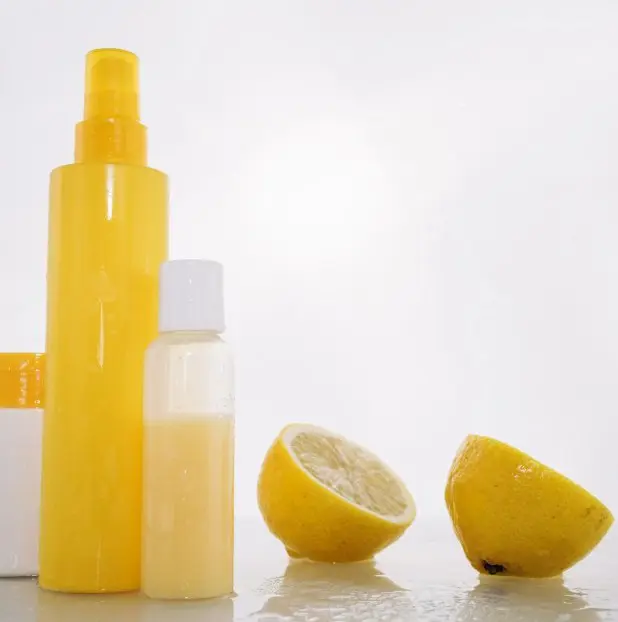
Containing citric acid, lemon juice acts as a natural astringent, helping to tighten pores and reduce oiliness. Dilute the lemon juice with water to prevent irritation and apply it to the affected areas using a cotton pad.
Due to its high acidity, it’s important to use sunscreen afterward as lemon juice can make the skin more sensitive to sunlight. The acidity of lemon juice can exfoliate dead skin cells and dissolve excess sebum, which can aid in clearing whiteheads.
12. Retinoid Cream
Retinoid creams are derived from vitamin A and play a crucial role in treating whiteheads. These creams can accelerate skin cell turnover, which helps prevent clogged pores that can lead to whiteheads. Applying retinoid cream at night can reduce the formation of new whiteheads.
Some consumers may experience redness or peeling, but this usually subsides as the skin adapts. Regular use, combined with sunscreen during the day, can enhance retinoids' effectiveness in maintaining clear skin.
13. Alpha Hydroxy Acid
Including Alpha hydroxy acids (AHAs) in your skincare routine could combat whiteheads effectively. AHAs (like glycolic or lactic acid) can exfoliate the skin's surface by dissolving dead skin cells and unclogging pores.
Apply the product to clean, dry skin, and follow the instructions for frequency. AHA can help smooth your skin's texture and minimize whiteheads from appearing soon. It is vital to follow the instructions of the product to not endure any side effects on your delicate skin.
14. Clay Mask
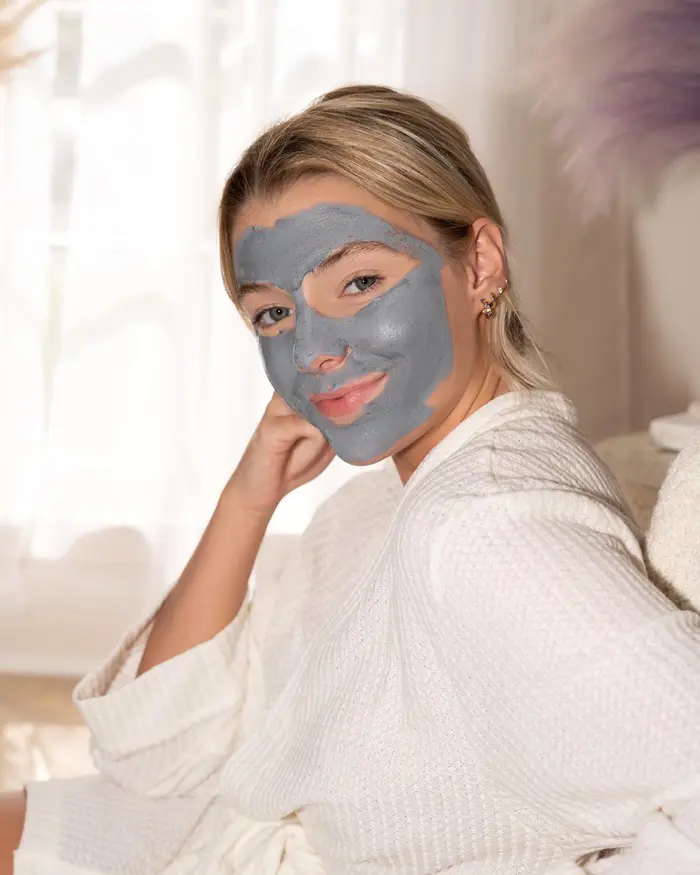
Clay masks work wonders for drawing out impurities and excess oil from the skin. Their absorbent properties assist in tightening pores and reducing whiteheads. Regular application of clay masks can improve the texture of your skin and help prevent future breakouts.
Apply a thin layer of the clay mask to your face, focusing on areas with whiteheads. You should let it dry according to the product instructions, generally about 10-15 minutes. Then, you need to rinse the mask off with lukewarm water.
15. Warm Compresses
Applying a warm compress can help to open up clogged pores, making it easier to remove the whiteheads. Doing this activity regularly can reduce the appearance of whiteheads and prevent new ones from forming. Keep the compress too hot to prevent irritating the skin.
You can simply soak a clean cloth in warm water and place it on your face for a few minutes. This process can soften the sebum and dead skin cells trapped inside the pores, facilitating their expulsion.
How To Choose A Remedy For Whiteheads?
Before you choose what remedy you'll use to remove the Whitehead issue, you need to figure out some basic things. Your skin type, severity of acne, and price are some of the factors you need to consider. Let us look at these factors in detail:
Type of Skin
Grasping your skin type is crucial when selecting a remedy for whiteheads. Different skin types respond differently to multiple treatments. For instance, oily skin may benefit from salicylic acid or benzoyl peroxide, which helps reduce excess oil and unclog pores.
Dry skin may require gentler treatments like hydrating masks or mild exfoliants to avoid irritation. Identifying your skin type is the first step to choosing a remedy that won't amplify the issue.
Severity of Acne
It is integral to assess the severity of your whiteheads to determine the appropriate treatment strength. Mild cases with only a few whiteheads might respond well to over-the-counter products containing salicylic acid or alpha hydroxy acids.
Severe whiteheads might necessitate prescription-strength treatments or professional advice. Matching the remedy’s potency to the severity ensures optimal results and reduces the risk of worsening the condition.
Price
Affordable over-the-counter options, such as drugstore cleansers and treatments, can be effective for many people and offer a cost-effective solution. Meanwhile, higher-priced products like premium skincare lines may offer advanced formulations and targeted solutions.
Although higher prices don’t always guarantee better results, balancing efficacy with cost ensures that you find a remedy that fits both your skincare needs and financial constraints.
Skin Care Tips
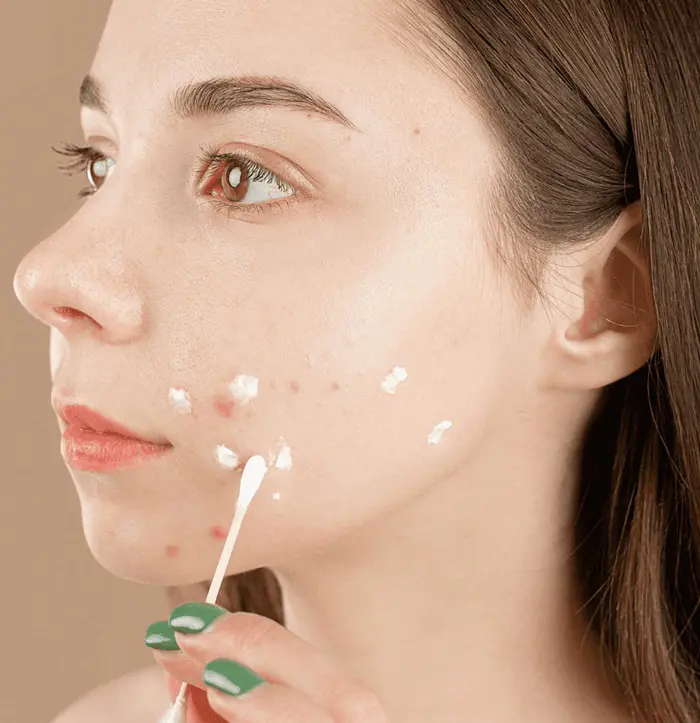
Whiteheads are a common form of acne caused by clogged pores filled with sebum, dead skin cells, and bacteria. They can appear as small, white bumps on the skin, typically on the neck, face, chest, and back.
Understanding the causes and prevention methods is crucial for the effective removal and maintenance of clear skin. Here are some tips for skin care:
- Cleanse Regularly - It is vital to wash your face twice a day with a gentle cleanser to remove dirt, oil, and makeup.
- Moisturize - Keep your skin hydrated with a non-comedogenic moisturizer to balance oil production. You should use a moisturizer every once in a while to get rid of dry, patchy skin.
- Avoid Heavy Makeup - You need to use non-comedogenic and oil-free makeup products to stop pore blockage. Pore blockage can lead to the formation of whiteheads.
- Stay Hydrated - Drink plenty of water to keep your skin hydrated and flush out toxins.
- Manage Stress - Practice stress-reducing activities like yoga, meditation, or exercise, as stress can trigger acne.
- Exfoliate - You should utilize a mild exfoliant once or twice a week to remove dead skin cells and avoid clogged pores.
- Do not Touch Your Face - Avoid touching your face frequently to prevent transferring dirt and bacteria to your skin.
- Sun Protection - Employ broad-spectrum sunscreen every day to protect your skin from UV damage. UV might contribute to whiteheads.
When To Consult A Doctor?
If your whitehead situation persists even after applying a home remedy, then you may need to see a professional doctor to solve the problem. Likewise, if the situation worsens than at present, there may be some underlying medical issue in you.
Addressing these issues quickly is important to maintain your overall health. Severe situations cannot be solved at home, and you will need the guided hand of a trusted health professional.
Persistent Whiteheads
When whiteheads persist for more than a few weeks despite consistent home treatments, it may be time to consult a doctor.
Persistent whiteheads can indicate a deeper skin issue that requires professional evaluation. A dermatologist can provide stronger treatments in treating these stubborn whiteheads.
Severe or Widespread Acne
Whiteheads turning into severe or widespread acne outbreaks can suggest a time for you to seek medical advice quickly. This type of acne may require prescription treatments or specific interventions that are beyond over-the-counter solutions. A doctor can recommend tailored treatments to manage severe acne effectively.
Scarring or Hyperpigmentation
If whiteheads start causing scarring or hyperpigmentation, you need to consult a dermatologist. Early medical intervention can prevent long-term skin damage.
Dermatologists can offer treatments like chemical peels, laser therapy, or prescription creams to minimize scarring and improve skin appearance.
Impact on Mental Health
Whiteheads that affect your self-esteem or mental health warrant a doctor's visit. Persistent skin issues can lead to anxiety, depression, or social withdrawal.
A dermatologist might aid in managing the physical symptoms, while a mental health professional can support emotional well-being.
Infection Signs
Noticing signs of infection like redness, swelling, pain, or pus around whiteheads means time to see a doctor. Infected whiteheads could result in more serious skin infections if not treated properly. A healthcare provider can prescribe antibiotics or other medicines to address the issue and stop further complications.
Recent posts
Lifestyle
Lifestyle
20 Best Foods For Inflammation + What To Avoid
Inflammation is an essential response that the body utilizes in the defense mechanisms against both harm and pathogens; however, if it becomes chronic, it becomes a real issue. Luckily, there are foods out there that are good for this process, more ...
Lifestyle
Nutritional Yeast Benefits, Nutrition and Uses
Often called "nooch", nutritional yeast is a deactivated form of yeast. It is often used to make vegan and dairy-free items. Various studies show that nutritional yeast possesses a range of health benefits. The mineral, vitamin, and antioxidant...
Lifestyle
Is Oatmeal Good For Weight Loss? Facts and Myths
Oatmeal has been a reputed healthy breakfast food for ages. It is derived from oats, a whole grain known for its compact nutrient profile and wide range of health benefits. Oatmeal, mostly rich in fiber, is also popular in weight loss diets. If...
Lifestyle
12 Dark Chocolate Benefits and Nutrition
Dark chocolate, a delightful treat for many is also packed with numerous health advantages. It is a nutritional powerhouse in addition to being a pleasant treat due to its rich velvety taste and remarkable collection of antioxidants. This delicious t...
Lifestyle
Is Chicken Good For Weight Loss? Ways To Eat It
When losing weight, the search for both healthy and filling foods is paramount, and chicken is usually among the best options. In addition to being rich in essential nutrients that play crucial roles in muscle management and overall body healt...
Lifestyle
Are Eggs Good For Weight Loss? Ways To Add
Eggs are loaded with protein and vitamins and therefore, they can be part of your team to help you in losing weight. Consuming eggs in your meals will give you the desired fullness and your appetite will be put under check, thus easily maintaining a...
